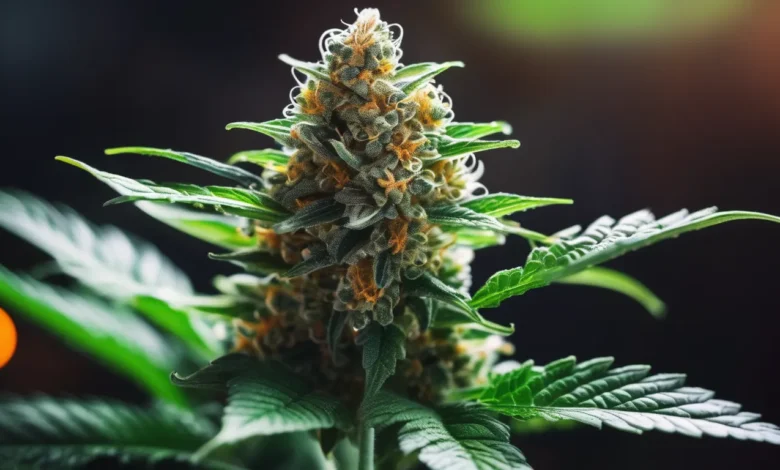Understanding THCA Flower: Benefits, Uses, and Effects

In the ever-changing cannabis landscape, the THCA (Tetrahydrocannabinolic Acid) flower has sparked widespread interest among enthusiasts and medical users alike. Often overlooked by its more well-known relative, THC (Tetrahydrocannabinol), THCA has its own set of qualities and benefits that are worth investigating. This page discusses what the THCA flower is, its benefits, prospective applications, and effects.
What is THCA?
Raw cannabis contains THCA, a nonpsychoactive cannabinoid. Unlike THC, which causes the “high” associated with cannabis ingestion, THCA does not elicit psychoactive effects. This makes THCA flower appealing to people who want the therapeutic benefits of cannabis without the intoxication effects. THCA is a precursor to THC, which means that when cannabis is heated, such as by smoking or vaping, THCA decarboxylates into THC, activating its euphoric characteristics.
Benefits of THCA Flower
1. Anti-Inflammatory Properties
One of the most noticeable advantages of THCA is its possible anti-inflammatory properties. According to research, THCA may help reduce inflammation in the body, making it a possible treatment option for people suffering from illnesses like arthritis or other inflammatory disorders. This characteristic enables consumers to get treatment without the euphoric effects that come with regular cannabis intake.
2. Neuroprotective Effects
Emerging research suggests that THCA may have neuroprotective qualities, which means it could help protect nerve cells from injury. This attribute is especially noteworthy for people suffering from neurodegenerative disorders such as Alzheimer’s and Parkinson’s. By potentially reducing the evolution of these ailments, THCA provides a ray of hope for individuals looking for alternative therapy.
3. Nausea Relief
THCA has shown potential in relieving nausea and vomiting, making it useful for people undergoing chemotherapy or who are experiencing nausea from other medical treatments. Unlike THC, which can worsen nausea in certain users, THCA may provide comfort without causing undesirable side effects.
4. Appetite Stimulation
Cannabis is well-known for its tendency to increase hunger, and THCA is no exception. This feature can be especially advantageous for those suffering from diseases that cause appetite loss, such as cancer or HIV/AIDS. Individuals who incorporate THCA flower into their regimen may have an easier time maintaining a balanced appetite and nutrient intake.
How to Use THCA Flower
THCA flower can be ingested in a variety of ways, letting consumers choose a technique that meets their needs. Here are some popular consumption methods:
- Raw Consumption: One of the simplest methods to reap the benefits of THCA is to consume raw cannabis flowers. This can be accomplished by mixing it into smoothies, salads, or juices. Raw cannabis retains its original ingredients, including a variety of cannabinoids and terpenes.
- Tinctures and Oils: THCA tinctures and oils are popular options for folks who do not want to smoke or vape. These items can be taken sublingually (under the tongue) for rapid absorption, or they can be mixed with foods and beverages.
- Juicing: Juicing raw cannabis is becoming more popular among health-conscious people. By mixing THCA-rich flowers into juices, consumers can reap the advantages of cannabis in a delicious, nutrient-dense beverage.
Effects of THCA Flower
As previously stated, THCA is not psychoactive, which means it does not cause the normal “high” associated with THC. Users may experience minor effects such as relaxation and mood enhancement without cognitive impairment or euphoria. This makes THCA Flower a good option for folks who want to enjoy cannabis more subtly.
Final Verdict
THCA flower is an interesting component of cannabis that deserves attention. With its possible anti-inflammatory, neuroprotective, and appetite-stimulating qualities, THCA provides several advantages that can improve the quality of life for many people. Whether ingested raw, via tinctures or mixed into juices, THCA offers an alternative for people seeking the medicinal benefits of cannabis without the euphoric experience. As research progresses, THCA may play a larger role in the future of cannabis treatment.


